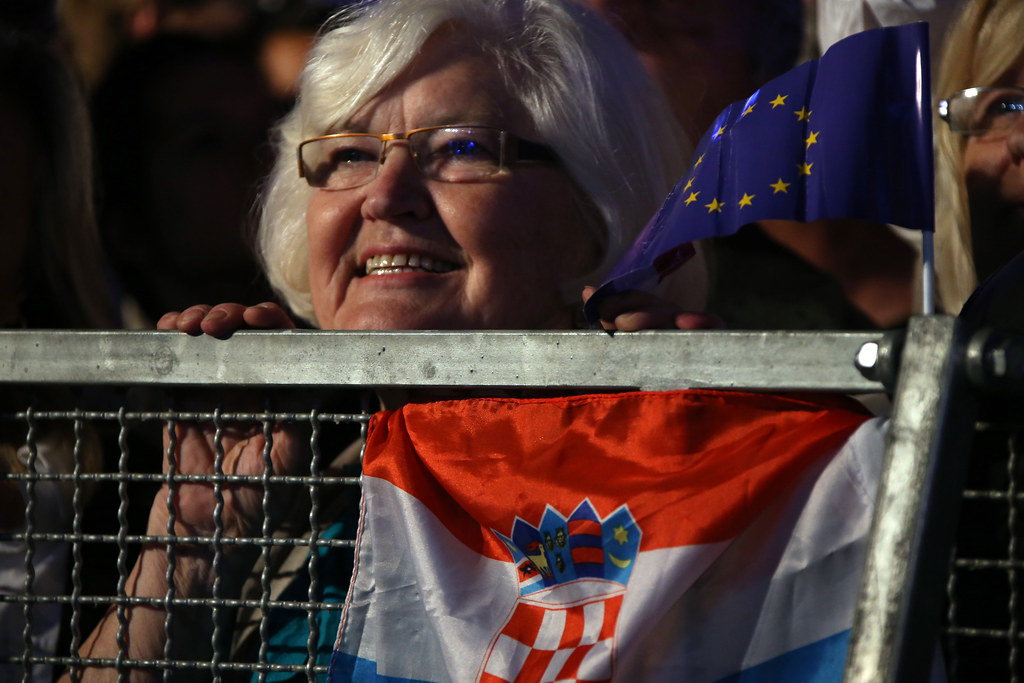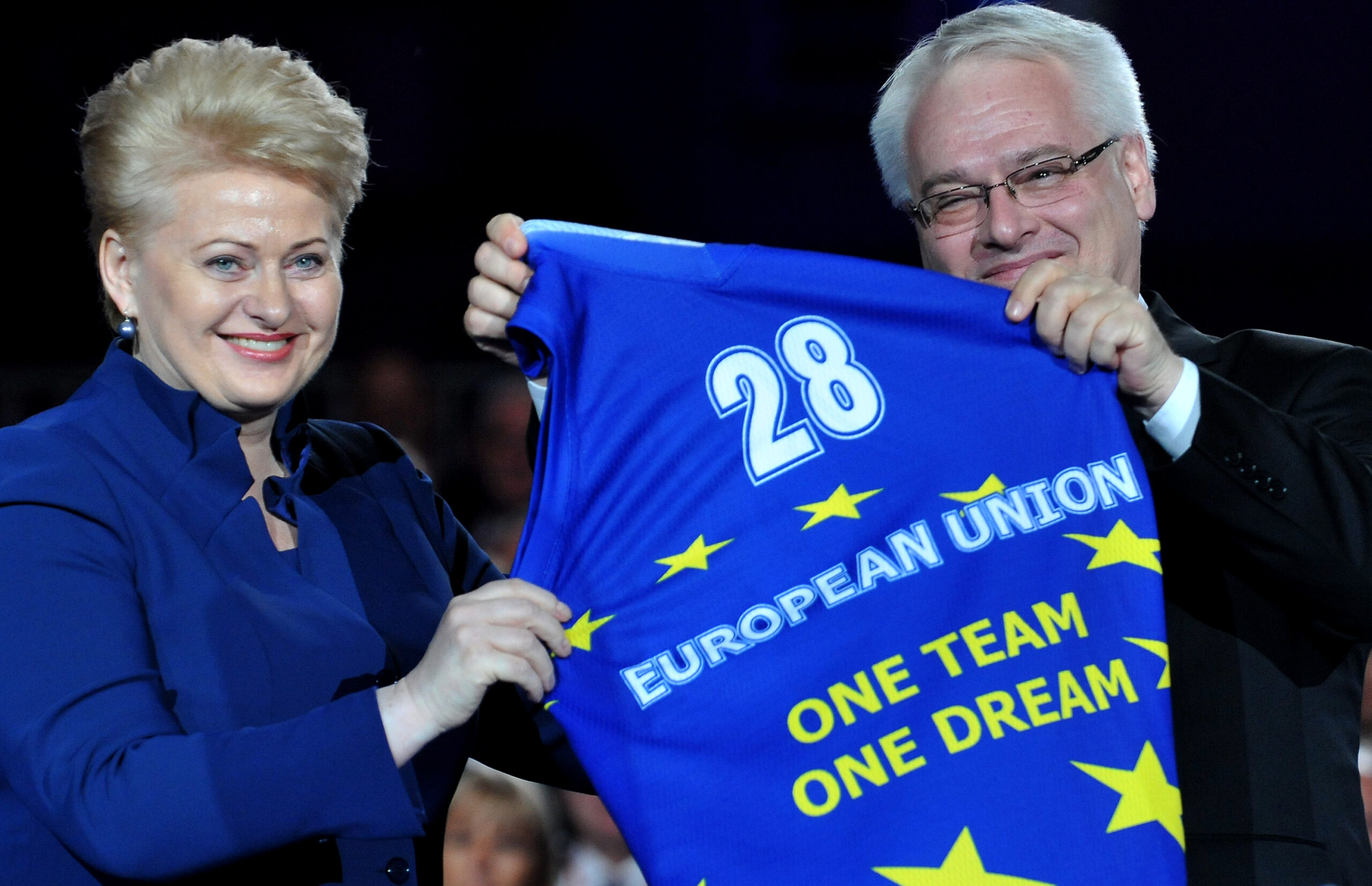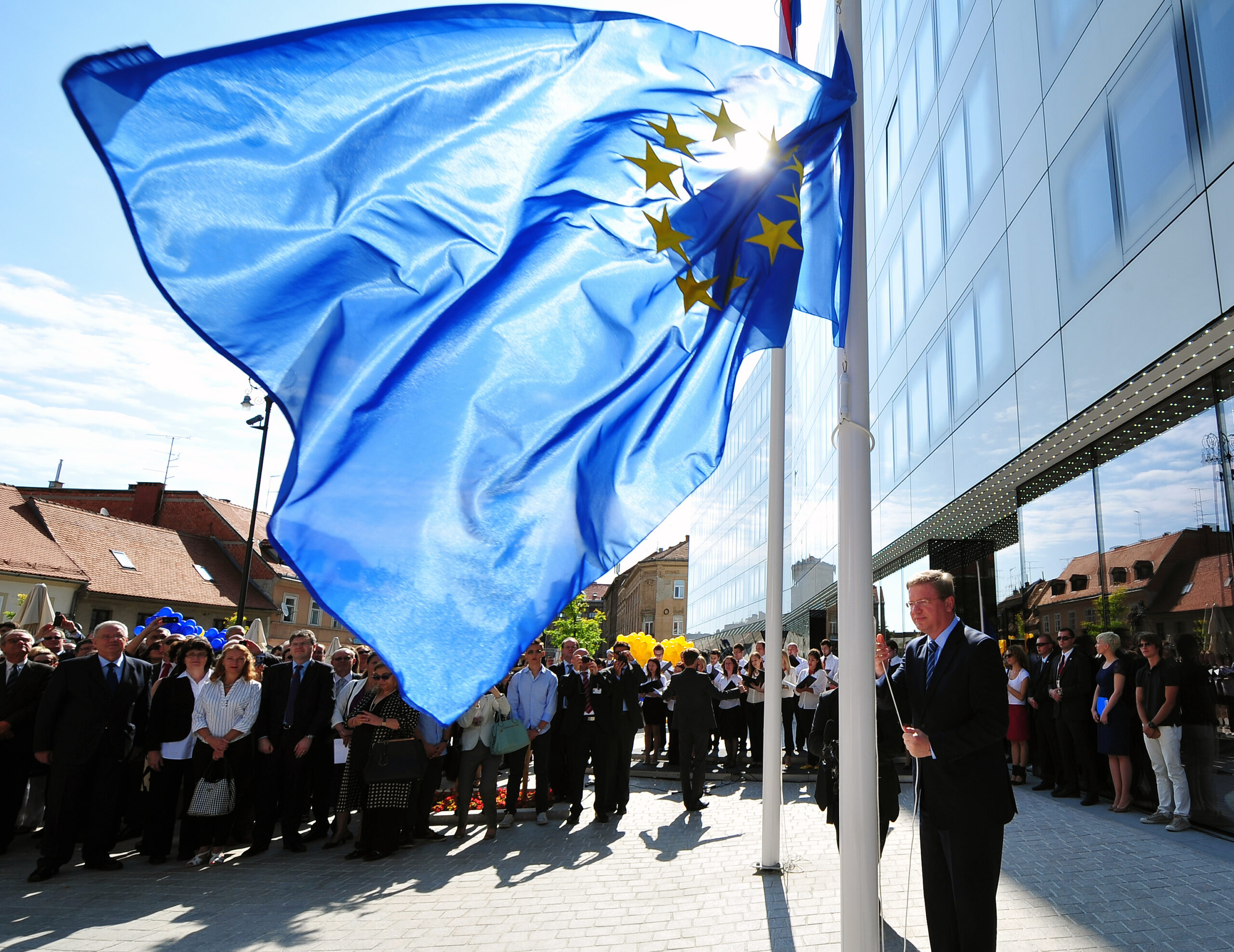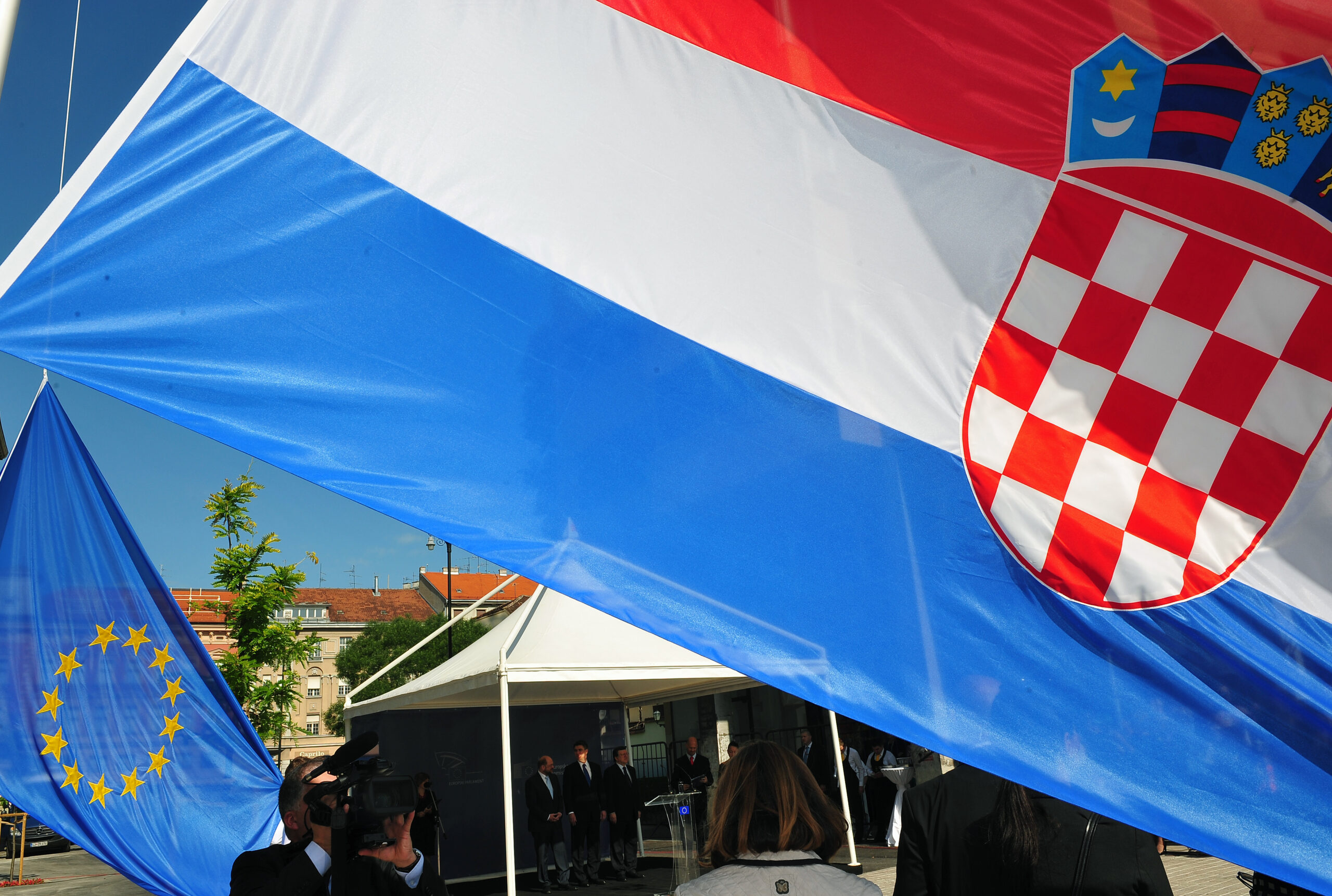
On 1st July 2025, Croatia marks twelve years of membership in the European Union. Having joined in 2013 as the 28th – and so far the most recent – full member state, six years after Bulgaria and Romania, Croatia entered the Schengen Area and the Eurozone at the start of 2023, adopting the euro as its national currency.
EU membership has brought Croatian citizens the freedom to move within EU borders, the right to seek employment in other member states, and access to numerous educational programmes. For the country itself, it has meant a seat at the political decision-making table at EU level, as well as access to investment funds. According to the European Parliament’s Eurobarometer winter 2025 survey, 85% of Croatian respondents said their country benefits from EU membership.

“I’ve long been a passionate supporter of the EU and all the opportunities and rights it offers. When we joined, my elder daughter was just starting secondary school, and I was thrilled because I knew that for her generation – and for the younger ones too – new opportunities would open up for education and later for employment across the EU. And I was right – she’s now doing her Master’s in the Netherlands. But the EU isn’t just about young people – it also provides a wide range of lifelong learning programmes that aren’t age-restricted. I know many people will say that everything has become more expensive since joining the EU and that many bright young people have left the country, but I see us as part of a community. We’re connected, all on one continent – you can drive, or take a low-cost flight. And I see in the media how local communities are developing well thanks to EU funds, and I believe we can even support our neighbours who haven’t yet joined the EU… I really like it”, says Marina (51), from Zadar.
According to Croatian media reports, the largest EU-funded investments over the past twelve years include the Pelješac Bridge (€350 million), the modernisation of the Rijeka–Budapest railway line (over €1 billion), the upgrade of Dubrovnik Airport (€250 million), the rural development programme (€2 billion), post-earthquake assistance to Petrinja (€1 billion), and various other forms of financial support.
According to government data, EU membership has helped accelerate Croatia’s economic development. While ten years ago Croatia’s development level was at 59% of the EU average, it is now over 70%. The process of drawing on EU funds has also significantly improved – in the first ten years, Croatia received €10.74 billion more from EU funds than it contributed to the common EU budget.
For now, we truly benefit from being in the EU, but I don’t know how long that will last. I fear we’re entering a period of serious challenges – but then again, I find some comfort in the fact that we’re not facing them alone”, says Ivica (35) from Zagreb.

According to Eurostat data for 2023, which were published in February 2025, Croatia is the safest country in the European Union – only 1.2% of people at risk of poverty reported experiencing crime, violence, or vandalism in their neighbourhood. Among those not at risk of poverty, the figure was 1.5%, the lowest in the EU, where the average stands at around 10%.

Alongside domestic reforms, Croatia – through its Ministry of Regional Development and EU Funds – has also been supporting neighbouring countries on their path to EU accession, especially Montenegro and Bosnia and Herzegovina. This support has included initiatives in healthcare (early diagnosis of melanoma and bowel cancer, for example), tourism, protection of cultural heritage, disaster risk prevention, and energy efficiency.
The experience of Croatia shows how EU membership can drive economic growth, improve public services, and enhance security. The Western Balkan countries now have a similar opportunity. With continued commitment to reforms, on rule of law, governance, green transition and digitalisation, they too can deliver real benefits for their citizens. Croatia’s journey is proof that transformation is possible when countries seize the momentum and stay the course toward the European Union.

“I’ve long been a passionate supporter of the EU and all the opportunities and rights it offers. When we joined, my elder daughter was just starting secondary school, and I was thrilled because I knew that for her generation – and for the younger ones too – new opportunities would open up for education and later for employment across the EU. And I was right – she’s now doing her Master’s in the Netherlands. But the EU isn’t just about young people – it also provides a wide range of lifelong learning programmes that aren’t age-restricted. I know many people will say that everything has become more expensive since joining the EU and that many bright young people have left the country, but I see us as part of a community. We’re connected, all on one continent – you can drive, or take a low-cost flight. And I see in the media how local communities are developing well thanks to EU funds, and I believe we can even support our neighbours who haven’t yet joined the EU… I really like it”, says Marina (51), from Zadar.
According to Croatian media reports, the largest EU-funded investments over the past twelve years include the Pelješac Bridge (€350 million), the modernisation of the Rijeka–Budapest railway line (over €1 billion), the upgrade of Dubrovnik Airport (€250 million), the rural development programme (€2 billion), post-earthquake assistance to Petrinja (€1 billion), and various other forms of financial support.
According to government data, EU membership has helped accelerate Croatia’s economic development. While ten years ago Croatia’s development level was at 59% of the EU average, it is now over 70%. The process of drawing on EU funds has also significantly improved – in the first ten years, Croatia received €10.74 billion more from EU funds than it contributed to the common EU budget.
For now, we truly benefit from being in the EU, but I don’t know how long that will last. I fear we’re entering a period of serious challenges – but then again, I find some comfort in the fact that we’re not facing them alone”, says Ivica (35) from Zagreb.

According to Eurostat data for 2023, which were published in February 2025, Croatia is the safest country in the European Union – only 1.2% of people at risk of poverty reported experiencing crime, violence, or vandalism in their neighbourhood. Among those not at risk of poverty, the figure was 1.5%, the lowest in the EU, where the average stands at around 10%.

Alongside domestic reforms, Croatia – through its Ministry of Regional Development and EU Funds – has also been supporting neighbouring countries on their path to EU accession, especially Montenegro and Bosnia and Herzegovina. This support has included initiatives in healthcare (early diagnosis of melanoma and bowel cancer, for example), tourism, protection of cultural heritage, disaster risk prevention, and energy efficiency.
The experience of Croatia shows how EU membership can drive economic growth, improve public services, and enhance security. The Western Balkan countries now have a similar opportunity. With continued commitment to reforms, on rule of law, governance, green transition and digitalisation, they too can deliver real benefits for their citizens. Croatia’s journey is proof that transformation is possible when countries seize the momentum and stay the course toward the European Union.
Please wait while your video is being uploaded...
Don't close this window!